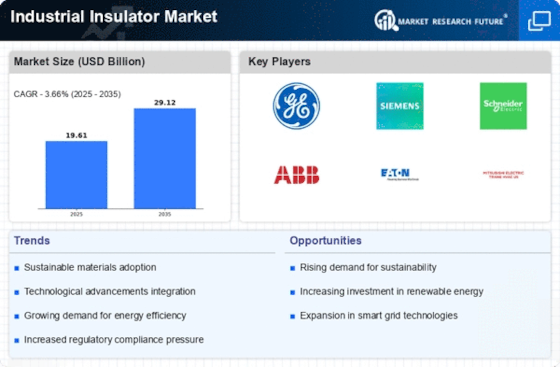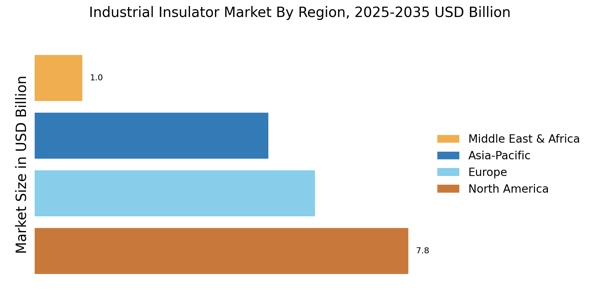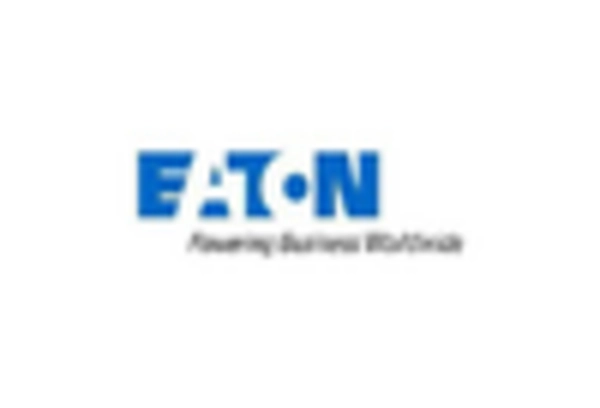Increasing Industrial Automation
The trend towards increasing industrial automation is having a profound impact on the Industrial Insulator Market. As industries adopt automated systems and smart technologies, the need for reliable and efficient electrical insulation becomes paramount. Insulators play a critical role in ensuring the safety and functionality of automated machinery and equipment. The rise of Industry 4.0 is expected to propel the demand for high-performance insulators, as manufacturers seek to enhance operational efficiency and reduce downtime. This shift could lead to a market growth rate of around 4% in the coming years, driven by the integration of automation in various sectors.
Rising Demand for Renewable Energy
The Industrial Insulator Market is experiencing a notable surge in demand due to the increasing focus on renewable energy sources. As countries strive to meet energy transition goals, investments in wind, solar, and hydroelectric power are escalating. This shift necessitates the use of high-quality insulators to ensure the reliability and efficiency of energy transmission systems. For instance, the demand for insulators in wind energy applications is projected to grow at a compound annual growth rate of approximately 6% over the next five years. This trend indicates a robust market potential for manufacturers specializing in insulators tailored for renewable energy applications.
Infrastructure Development Projects
Infrastructure development projects are significantly influencing the Industrial Insulator Market. Governments and private sectors are investing heavily in upgrading and expanding electrical grids, transportation networks, and industrial facilities. This investment is driven by the need for enhanced energy efficiency and reliability. For example, the construction of new power plants and substations requires advanced insulator technologies to withstand harsh environmental conditions. The market for insulators in infrastructure projects is expected to witness a growth rate of around 5% annually, reflecting the increasing need for durable and efficient insulating solutions.
Regulatory Compliance and Safety Standards
Regulatory compliance and safety standards are increasingly shaping the Industrial Insulator Market. Governments and regulatory bodies are implementing stringent safety regulations to ensure the reliability and safety of electrical systems. This has led to a heightened demand for high-quality insulators that meet these standards. Manufacturers are compelled to innovate and produce insulators that not only comply with safety regulations but also enhance the overall performance of electrical systems. The market is expected to grow at a rate of approximately 5% as industries prioritize compliance and safety in their operations.
Technological Innovations in Insulation Materials
Technological innovations are reshaping the Industrial Insulator Market, particularly through the development of advanced insulation materials. Innovations such as polymer-based insulators and nanotechnology are enhancing the performance and durability of insulators. These materials offer superior electrical properties and resistance to environmental factors, making them ideal for various industrial applications. The introduction of these advanced materials is likely to drive market growth, as manufacturers seek to meet the evolving demands of industries such as power generation and transmission. The market for advanced insulation materials is projected to expand by approximately 7% over the next few years.

















